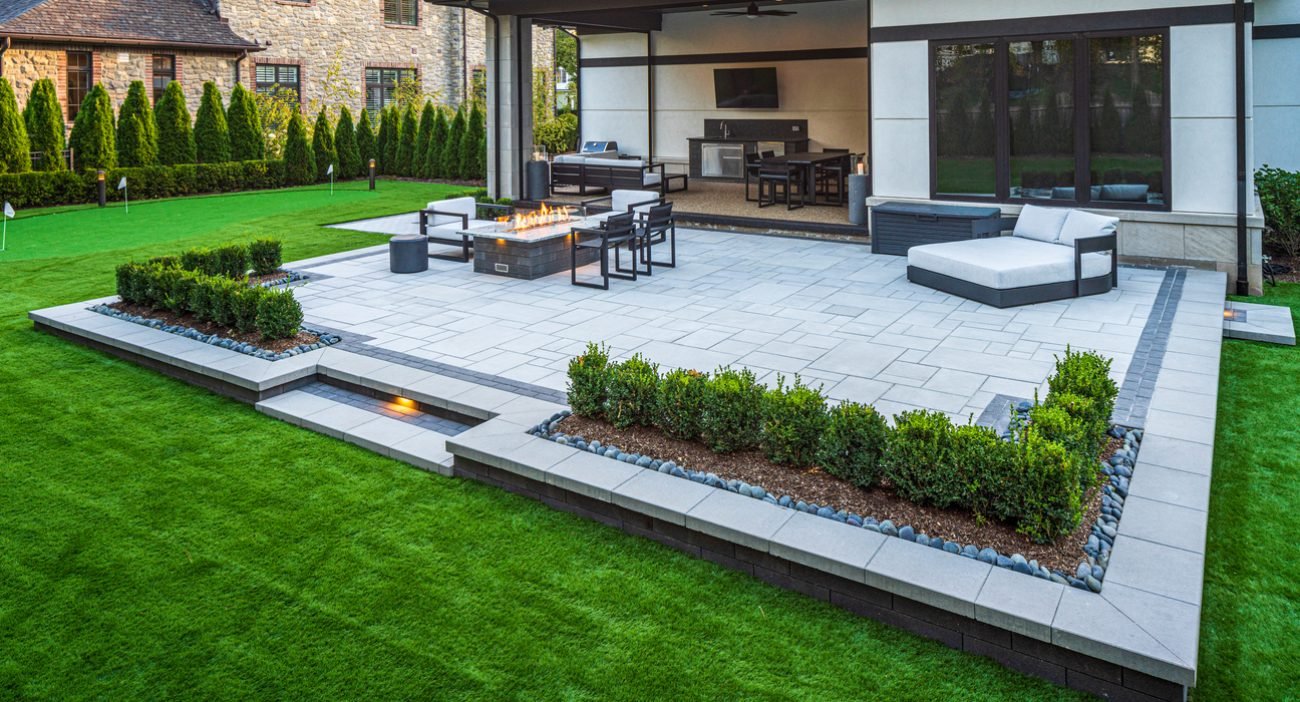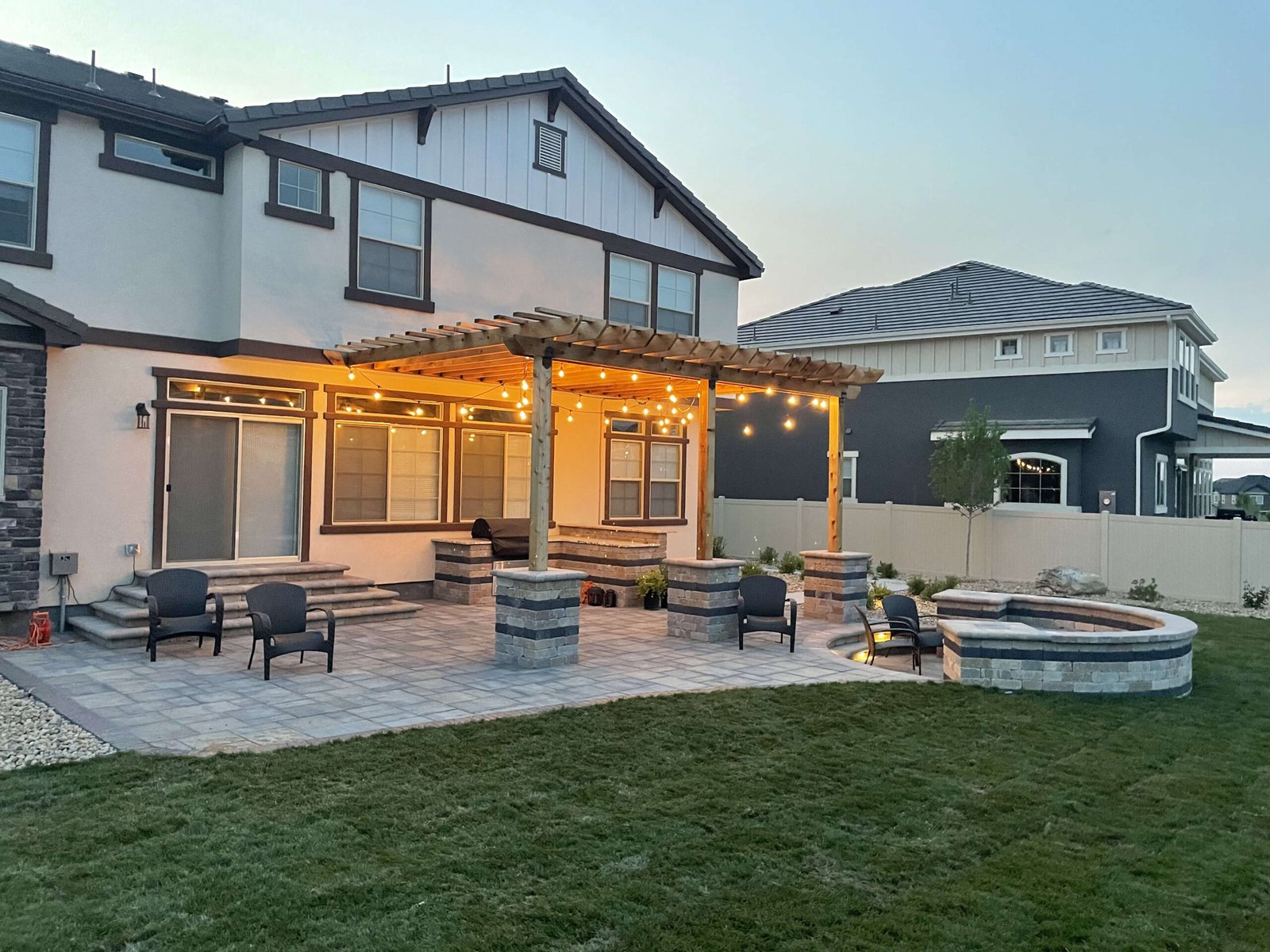Adding a pergola to your outdoor space can transform your backyard into an inviting oasis while offering protection from the Colorado sun. However, when installing a pergola in Colorado Springs, several factors must be taken into consideration to ensure the structure is both functional and aesthetically pleasing. From climate concerns to material selection and local regulations, here’s everything you need to know before embarking on this outdoor enhancement.
1. Climate Considerations in Colorado Springs
Colorado Springs boasts a semi-arid climate, characterized by hot summers, cold winters, and a wide range of weather variations. When planning your pergola, it is essential to consider how the structure will withstand these conditions.
Extreme Sun Exposure
The summer sun in Colorado Springs can be intense, making shade a priority when designing your pergola. You may want to opt for additional features like a UV-resistant cover or retractable canopies. Using materials that reflect or absorb sunlight effectively, like light-colored wood or powder-coated metal, can help in keeping the temperature down under the pergola.
Snow Load Capacity
Winter in Colorado Springs comes with snowfall, which can accumulate on the roof of your pergola. If you’re considering a solid or partially covered pergola, ensure the structure is designed to bear the weight of snow. Pergolas made from durable materials like steel or hardwoods will withstand heavy loads, but you’ll also need to consult local building codes for snow load requirements.
Wind Resistance
Strong winds are common in Colorado, particularly during the spring and fall seasons. Choose sturdy materials like cedar wood or aluminum, which offer durability and resistance against wind damage. Anchoring your pergola properly into the ground is crucial to prevent shifting or collapsing during windstorms.
2. Choosing the Right Materials
The material you choose for your pergola can significantly impact its durability, maintenance needs, and overall aesthetic appeal. Common materials include wood, vinyl, and metal, each with its pros and cons in the context of Colorado Springs’ unique climate.
Wood Pergolas
Wooden pergolas, particularly those made from cedar or redwood, are a popular choice due to their natural appearance and resistance to pests. These woods are also durable enough to handle Colorado’s varied climate. However, wood pergolas require regular maintenance, including sealing and staining, to prevent rot and weather damage.
Metal Pergolas
If you’re looking for a low-maintenance option, aluminum or steel pergolas can withstand the test of time. They are rust-resistant, and when coated properly, they can endure harsh weather without much upkeep. Metal pergolas also offer a sleek, modern look that can complement contemporary outdoor spaces.
Vinyl Pergolas
Vinyl pergolas are another low-maintenance alternative. While they may not have the natural warmth of wood, vinyl is highly durable, doesn’t fade, and can be cleaned easily with soap and water. However, vinyl may not be as strong under heavy snow loads unless reinforced with steel.
3. Permits and Local Building Regulations
In Colorado Springs, you’ll likely need to acquire permits before starting the installation of your pergola. Building codes may have specific requirements regarding setback distances, snow load, and wind resistance, which vary depending on your location within the city.
Before beginning construction, we recommend contacting your local planning department to ensure you meet all zoning regulations. Some homeowner associations (HOAs) may also have rules governing the appearance and placement of outdoor structures like pergolas, so it’s crucial to check with them as well.
4. Customization Options for Your Pergola
A pergola is more than just an overhead structure—it can be tailored to meet your specific outdoor needs, whether you’re looking for a peaceful retreat, a stylish entertaining space, or a sun-protected area.
Shade Solutions
While traditional pergolas offer partial shade, you may want to enhance this by adding features like shade cloths, retractable canopies, or even climbing plants such as wisteria or grapevines to create a natural canopy. These additions can help you maximize shade while creating a cooler, more comfortable environment.
Lighting and Electrical Outlets
Adding lighting fixtures can turn your pergola into a functional space for evening gatherings. Consider installing LED string lights, pendant lighting, or even integrated spotlights to enhance the ambiance. Additionally, outdoor electrical outlets will allow you to use appliances, speakers, or heating elements under your pergola.
Outdoor Furniture and Decor
Select weather-resistant furniture, such as rattan or metal seating, that complements the style of your pergola. Adding throw pillows, area rugs, and potted plants can further enhance the aesthetics and comfort of the space.
5. Maintenance Considerations
Regardless of the material you choose, regular maintenance will ensure your pergola stays in good condition for years to come.
Wood Maintenance
Wooden pergolas, especially those made from natural materials like cedar, require staining or sealing every 1-2 years to prevent moisture damage and to maintain their appearance. Regularly inspect the structure for signs of splitting, warping, or insect infestations.
Metal and Vinyl Maintenance
Metal pergolas, particularly those made from aluminum, require minimal maintenance but should be cleaned periodically to remove debris and prevent buildup. Vinyl pergolas can be easily cleaned with a garden hose or pressure washer. Check for any loose screws or attachments to maintain the structural integrity of your pergola.
6. Cost and Installation Time
The cost of installing a pergola in Colorado Springs can vary significantly depending on the size, material, and any customization options you select. On average, homeowners can expect to spend anywhere between $3,000 to $8,000 on a professionally installed pergola.
Installation time can also vary, with most pergolas taking about 2-4 days to complete, depending on the complexity of the design and the availability of materials.
DIY vs. Professional Installation
While some pergola kits are available for DIY enthusiasts, hiring a professional ensures that the structure is safely anchored and built to withstand Colorado Springs’ unique weather conditions. Professional installers will also be familiar with local building codes and permit requirements, saving you the hassle of navigating the process on your own.
Conclusion
A pergola can significantly enhance the beauty and usability of your outdoor space in Colorado Springs. However, careful consideration of the local climate, the best materials for longevity, and compliance with building regulations are key to a successful installation. Whether you’re looking to create a cozy retreat or an elegant space for entertaining, a pergola adds both value and charm to your property.
At Empyre Outdoor Living, we specialize in designing and building high-quality outdoor structures that are tailored to your needs and the unique Colorado climate. Let our team of experts help you bring your outdoor vision to life with a durable, beautiful pergola that complements your home. Contact us today to get started!
Frequently Asked Questions
Yes, many pergolas can be customized with retractable canopies or shade covers. These additions provide more flexibility for controlling sunlight and protecting against rain. They are especially useful in Colorado Springs, where the weather can vary from sunny to stormy throughout the year.
The installation time for a pergola typically ranges from 2 to 4 days, depending on the size and complexity of the design. Factors like weather conditions, site preparation, and material availability can also affect the timeline.
Yes, but it depends on the materials and construction. Wood, metal, and reinforced vinyl pergolas are ideal for handling snow loads and strong winds. It’s essential to ensure that your pergola is securely anchored and built according to local building codes for weather resistance.
Absolutely. Pergolas can be installed over existing patios or decks, adding style and shade to your outdoor area. It’s important to ensure the structure is properly anchored and that the deck or patio is strong enough to support the pergola, especially in areas with heavy snowfall or strong winds.
Yes, adding a pergola can enhance your home’s curb appeal and outdoor living space, making your property more attractive to potential buyers. Well-designed outdoor features, such as pergolas, generally offer a good return on investment, particularly in areas where outdoor living is highly valued, like Colorado Springs.










